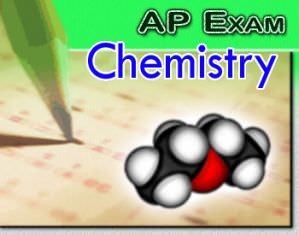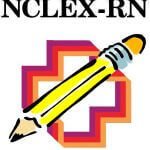AP Chemistry Exam: What To Learn, What To Expect
If you’re like us and still recovering from that incredible Breaking Bad finale a couple of weeks ago, you may be on such a high right now that you want to follow in the chemistry footsteps of Walter White (NOTE: not the meth footsteps, that would be stupid and dangerous, besides there can be only one Heisenberg).
If so, or if you find chemistry cool for any other reason, then you may want to think about enrolling in an Advanced Placement Chemistry (AP Chemistry or AP Chem) course and pursuing the official examination offered by the College Board.
The AP exams give American and Canadian high school students the opportunity to demonstrate their abilities and earn college-level credit. Here’s a very basic rundown of what you need to know to do well on the AP Chemistry exam:
1. They are stoichiometry heavy.
This deals with the relative quantities of reactants and products in chemical reactions.
2. Properties of elements.
Elements are pure chemical substances consisting of one type of atom distinguished by its atomic number, which is the number of protons in its nucleus. These are divided into metals, metalloids, and non-metals. Carbon, oxygen, and silicon, are popular examples.
3. Acid-base reactions.
These are chemical reactions that occur between an acid and a base. Their importance becomes apparent as different methods of analysis when applied to acid–base reactions for gaseous or liquid species, or when acid or base character may be somewhat less apparent.
4. Rate reactions.
How fast or slow a chemical reaction takes place.
5. Solubility.
This term describes the property of a solid, liquid, or gaseous chemical substance, called “solute,” to dissolve in a solid, liquid, or gaseous solvent to form a homogeneous solution of the solute in the solvent. The solubility of a substance fundamentally relies on the physical and chemical properties of the solute and solvent as well as on temperature, pressure and the pH of the solution.
6. Math up to and including algebra II.
7. Critical thinking and problem solving capabilities.
8. The ability to keep pace.
Now, with that said, we turn to two guys from the Quora community with an absolute love for chemistry who reveal the ins and outs of how to make your training work for you.
First up, former chemistry student Matt Randolph.
Randolph advises you to “Understand that everything in chemistry has to do with electrons; chemistry is the science of how electrons interact with other electrons.”
Once that knowledge is in place, he suggests adhering to these principles for speeding up your understanding and delving further into specifics:
Understand how the Periodic Table of the Elements is set up.
According to Randolph, the periodic table is set up “by increasing atomic number (or the number of protons in the nucleus), but it is also organized by how electrons are surrounding the nucleus.”
As an example, Randolph states, one should, Spend some time finding out why hydrogen is in group 1 and why carbon is in 14.”
Seek to understand, not to memorize.
“Simply memorizing things in chemistry textbooks or in lectures is not a good idea,” Randolph explained. “There are reasons for everything in chemistry. Look to understand WHY things happen the way they do. Everything builds off of what comes before, so having a solid grasp on why more basic things occur the way they do will aid greatly in understanding more complicated topics.”
“Again, everything can somehow be traced back to how the electrons are arranged,” he added.
The Periodic Table of the Elements is your friend.
Randolph advises chem students to look at the periodic table often, “and learn what all the numbers and symbols mean.”
“After a while, you may even find yourself memorizing properties of common elements completely by accident!”
In summary, Randolph notes, one should “seek to understand what you learn, rather than merely memorize what you need for a test. Learn how electrons work (but don’t fret too much about the concept of quantum, even Niels Bohr himself admitted to not fully understanding it), understand how the Periodic Table of the Elements is organized, and look to it often for answers.”
Next, we have Andrew Wolff, chemist and adjunct professor of chemistry at the University of Wisconsin-Madison:
“There is no ‘fast’ way to learn chemistry,” Wolff explains. “Matt Randolph gave you an excellent summary of what foundation knowledge you will need to learn Chemistry, and I strongly second his answer. In addition I would offer the following:
“A typical Intro Chemistry class is like a building. You start by pouring a foundation — that is, you learn the basic language of any physical science: the Metric or SI system, the scientific method, basic laboratory techniques and safety. Then you build on that.”
Wolff notes that unless one understands “a gram and a meter and a joule, you won’t understand the atom, the mole, or the electron.”
“Think of those as the ground floor of any chemistry class,” he added.
According to Wolff, the “second floor” would include stoichiometry, concentration of solutions including molarity, molality, and other related factors.
“Once you have the second floor firmly under you, you have a hope of understanding acid-base titrations, electrochemistry, equilibrium, and so forth,” he said. “Each part of the class will depend on you mastering the previous material. This is quite different from other courses where you cannot understand a section but go on to the next section and do okay.”
Wolff continued: “The one thing that I would emphasize — as did Matt — is that Chemistry is the only class I know of where they let you use a cheat sheet. The periodic table is one massive cheat sheet — you just have to understand it and everything else falls in place. I should note that I work as a chemist, and I actually have one above my desk where I can see it. I refer to it regularly.”
Are you planning on taking an AP Chemistry exam in the near future?
What do you think your strongest and weakest areas are? What specific help might help you improve your scores? Share your thoughts in our comments or by commenting at Facebook or G+.
[Image via ActiveNetwork.com]








